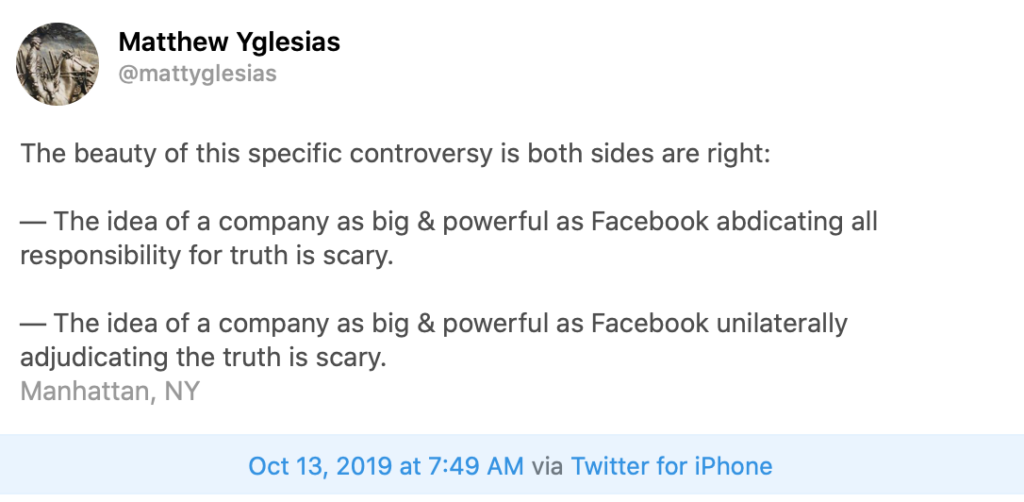As with almost everything on the internet, misleading headlines are not a new phenomenon. What’s new, and notable, is the scale of our exposure to the phenomenon. Today, on Twitter, many of us now spend a significant portion of our lives inside a virtual world of headlines.
Source: Dopamine Thirst Trap – Pirate Wires
Well, not me. I deactivated my Twitter account again. I can’t, in good conscience, continue to be manipulated by the platform. That being said, I’ve been fighting the urge to reactivate it, because I enjoy the thrill of seeing all the drama unfold in real time. That’s the problem, and why “the only winning move is not to play.”
This guy points out that Twitter’s censorship has not been fair, so they’re going to crowdsource it, and then, rightly, makes fun of the idea:
Anyway, Twitter said “fuck it” this week and decided they could crowd source the truth.
I publicly critiqued Birdwatch for what I believed the obvious danger inherent of determining “truth” by popular vote. Like, from science to civil rights literally when has this ever worked out? A handful of commenters expressed frustration with the point, and asked what I would do about the problem of misinformation were I in charge. But misinformation is as old as human civilization. What’s new is the phenomenon of instantaneous information virality, and this is where we should focus.
Where does someone go to defend themselves from cancellation if hosting providers follow suit, and won’t let them back on the internet? You can say that Parler had other alternatives besides AWS to host their site, but I venture to say, given prevailing public sentiment, that Microsoft and Oracle wouldn’t have let them use their clouds either, for fear of being labeled “Nazi sympathizers.”
You can say — as I have — that they could buy some servers and rent space in a co-lo facility, but who’s to say that public pressure wouldn’t cause the hosting company to give them boot, or their ISP’s to cut off network access, or their WAN providers to remove their BGP routes, or their DNS registrar to delete their entries? We are all dependent on access to the internet at this point, and there are many gatekeepers involved. The mob can apply pressure at any one of these points.
My approach to the news has been to read alternating reports about controversial stories until they “converge” on a consistent set of most-likely facts. Not coincidentally, I cribbed this approach from how I go about implementing a new programming technique. I read a lot of documentation, Q&A’s, and blog posts about it, until I see a consistent, reliable, and understandable implementation emerge. How will I be able to read original sources and make my own informed opinion about some of the most important, yet controversial, issues of the day, when platforms acting as de facto common carriers eject people from their services when the mob gangs up on them?
Either we’re a county that believes in freedom of speech, or we’re not. You can say that we shouldn’t allow speech calling for violence. We don’t. There are all sorts of legal remedies for this already. You can say that the speed by which this particular form of speech makes it impossible to react quickly enough to avail ourselves of our existing legal tools. That’s why “Pirate Wires” here is advocating slowing everything on Twitter down, and admitting up front that this idea runs in stark contrast to all the profit motives driving the company.
I think banning people you don’t like because they said something which might be legally actionable is the wrong approach. For every single example you can show me where some “conservative” said something legally objectionable, you can find some “liberal” who said exactly the same thing. The “liberals” I’ve traded comments with about this say “it’s not the same thing” because you have to consider the size of the audience of followers. Fine. Put that into the algorithm then, and then do it. It’s just popular, right now, to go after the conservatives. What happens when the same rules get applied to the next big Antifa or BLM protest, and “leaders” of those movements suddenly find themselves without the platform on which they’ve relied? I suspect we’re going to find out, and pretty quickly.

